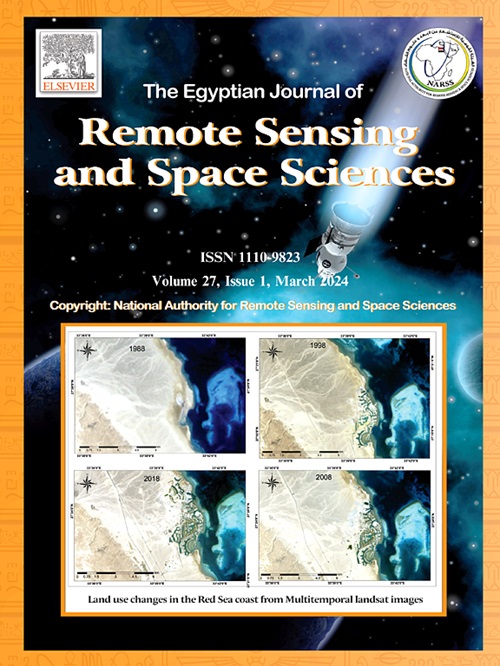A q-learning approach for enhanced routing in dynamic LEO satellite networks
IF 3.7
3区 地球科学
Q2 ENVIRONMENTAL SCIENCES
Egyptian Journal of Remote Sensing and Space Sciences
Pub Date : 2025-05-09
DOI:10.1016/j.ejrs.2025.05.002
引用次数: 0
Abstract
As global communication demand rises, Low Earth Orbit (LEO) satellite systems offer high-speed data transmission and extensive coverage options but face routing challenges due to dynamic topologies. This paper introduces a Q-Learning-based routing approach that converts dynamic networks into virtually static topologies at different snapshot intervals. Simulation results on a 66-satellite Starlink constellation demonstrate that Q-Learning outperforms Dijkstra’s algorithm, achieving faster convergence and reduced latency. These findings highlight the potential for Q-Learning in enhancing efficient, cost-effective satellite communications.
动态LEO卫星网络中增强路由的q-学习方法
随着全球通信需求的增长,低地球轨道(LEO)卫星系统提供高速数据传输和广泛的覆盖选择,但由于动态拓扑结构而面临路由挑战。本文介绍了一种基于q - learning的路由方法,该方法在不同的快照间隔上将动态网络转换为虚拟静态拓扑。在66颗卫星Starlink星座上的仿真结果表明,Q-Learning优于Dijkstra算法,实现了更快的收敛和更低的延迟。这些发现突出了Q-Learning在提高卫星通信效率和成本效益方面的潜力。
本文章由计算机程序翻译,如有差异,请以英文原文为准。
求助全文
约1分钟内获得全文
求助全文
来源期刊
CiteScore
8.10
自引率
0.00%
发文量
85
审稿时长
48 weeks
期刊介绍:
The Egyptian Journal of Remote Sensing and Space Sciences (EJRS) encompasses a comprehensive range of topics within Remote Sensing, Geographic Information Systems (GIS), planetary geology, and space technology development, including theories, applications, and modeling. EJRS aims to disseminate high-quality, peer-reviewed research focusing on the advancement of remote sensing and GIS technologies and their practical applications for effective planning, sustainable development, and environmental resource conservation. The journal particularly welcomes innovative papers with broad scientific appeal.

 求助内容:
求助内容: 应助结果提醒方式:
应助结果提醒方式:


